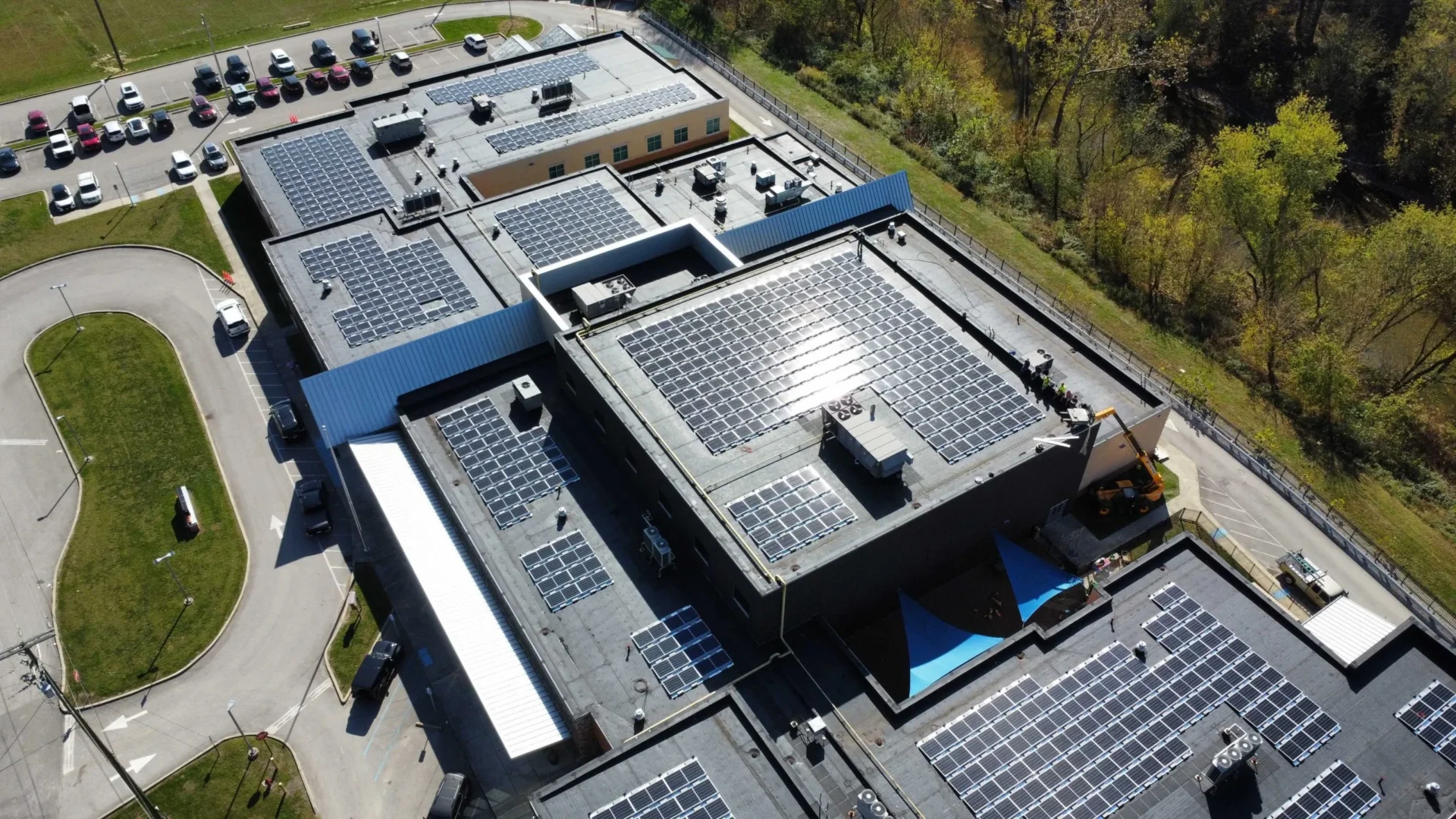Strong outcry defeats anti-solar bill in West Virginia
- Stories

Photo courtesy Solar Holler.
When energy rights are under threat, West Virginians fight back.
In the spring of 2025, solar opponents introduced a harmful bill in the West Virginia legislature. Senate Bill 763 targeted Power Purchase Agreements (PPAs), which are financial agreements that can help homeowners, schools and municipalities afford solar. If passed, the bill would have put restrictions on PPAs that would have been economically unworkable. But solar supporters spoke up, and lawmakers dropped the bill.
In a PPA, a company installs solar panels on a customer’s roof. The company maintains ownership over the panels, and the customer pays them for the energy that the panels generate. That energy has an affordable rate – generally less than the customer would pay to the utility company.
In these arrangements, the customer pays no installation, equipment, or maintenance costs, making it a great option to reap the cost-saving benefits of solar energy. And when schools and municipalities save money, that money can be used to improve education and lower taxes.
The Wayne County school district recently installed solar panels through a PPA. “We try to look at every avenue possible to save money,” explained Superintendent Todd Alexander. For Alexander, solar energy was a no-brainer: the school district is expected to save at least $6.5 million in electricity costs over the lifetime of the solar panels.
SB 763 would have put so many restrictions on Power Purchase Agreements that they would be almost impossible for municipalities and schools to use. Two provisions of the bill were especially dangerous:
5-year contract limit: The bill would have limited PPAs to only five years, but many solar projects take longer to earn a return on investment. That means it would be difficult to enter a PPA that guarantees long-term financial benefits for both parties. Cory Chase, West Virginia Program Associate for SUN, is himself working on powering his home with solar through a PPA. According to Chase, this contract limit is “completely impractical”.
Mandatory battery storage: The bill would also have required 48-hour on-site backup battery storage for every public institution that enters a PPA. While battery storage can be a great addition to a solar project, it remains economically unfeasible for many solar owners. Forcing PPAs to install batteries imposes an unfair burden on public institutions, making it less likely for them to choose solar.
Fortunately, solar supporters acted quickly to defend West Virginians from this harmful bill. Over 400 people contacted their legislators to voice their support for PPAs. Local solar installer companies also spoke up against the bill, citing the fact that it would have cost West Virginia jobs.
As a result of their advocacy, SB 763 was dropped from the docket! That means that the bill will not advance, and PPAs in West Virginia are safe for now. Thanks to solar supporters, schools and municipalities in West Virginia can continue to save money and generate good-paying jobs for the local economy.
SB763’s swift defeat shows the growing power of the solar movement in West Virginia! Jump on board by signing up to volunteer.
Get the latest on solar straight to your inbox.
Fight for your solar rights.
Everyone has the right to go solar. Spread the sunshine nationwide and in your local community by taking action, joining events, and more.